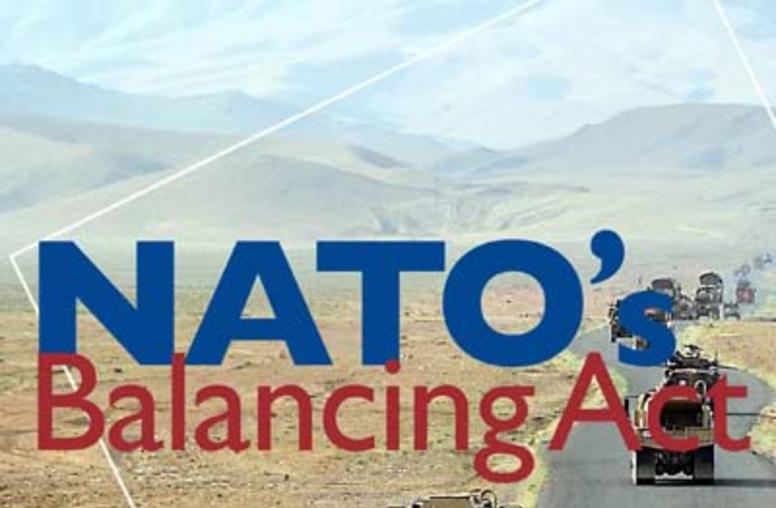Serbia Takes a Step in the Right Direction
USIPBriefing analyzes the outcome of the recent presidential elections in Serbia and their likely impact.
Serbia's President, Boris Tadic, visits Washington this week. His electoral victory June 27 over an extreme nationalist pulled Serbia back from the brink and gave it another opportunity to overcome the setbacks it suffered under Slobodan Milosevic. While the road ahead remains rocky, Tadic offers a reformist alternative to Serbia's voters, its neighbors, and the international community.
The United States Institute of Peace (USIP) convened its Balkans Working Group on June 29, 2004, to discuss "Serbia's New President: Where Will He Lead?" The group analyzed the outcome of presidential elections and their likely impact on Serbia, its prospects for European integration, as well as its relations with Montenegro, Kosovo and the international community. The group included distinguished experts on the Balkans and Serbia, as well as government officials, non-governmental organizations and academics. USIP's Peace and Stability Operations Director Daniel Serwer chaired the meeting.
The best electoral outcome...
After three failed attempts and nearly a year and a half of vacated presidency, Serbia finally has a president. And he is a true democrat, friend of both Europe and the United States. The victory of Boris Tadic of Democratic Party (DS) put to an end a long-lasting and destructive institutional crisis in Serbia and halted a dangerous trend of increased support for radical nationalists. Tadic's victory also brought together all of Serbia's democratic forces, for the first time since the overthrow of Slobodan Milosevic's dictatorship nearly four years ago. Enjoying in the second round the broadest support of democratic forces that any candidate in Serbia has ever been able to muster - including the support of minorities - Tadic defeated Tomislav Nikolic of the Radical Party of Serbia (SRS). The message from the presidential elections was unequivocal - the success of democracy in Serbia requires unity of its democratic political forces.
Several factors account for Tadic's victory. The political apathy and drift back towards nationalism that had been settling on Serbia for years gave way to recognition that Nikolic's victory would set back reform efforts and return Serbia to international isolation. Voters, particularly young ones, showed up at the polls in larger numbers than in two previous elections, and in slightly larger numbers than in the first round, which had been won by Nikolic. Serbian voters perceived a direct link between the electoral outcome and prospects for Serbia's integration into Euro-Atlantic structures. Progress in that direction by Serbia's neighbors gave voters a strong push in Tadic's direction.
In addition to the positive results, the Serbian elections demonstrated other important features. There was an unprecedented degree of civility among the candidates, particularly in the second round of voting. Confrontations were on substance, not personalities. Nikolic's Radical party, known for its xenophobic and nationalist platform in the past, was forced to play by the rules, marginally tone down its rhetoric and demonstrate its commitment to Serbia's European future.
...but not yet the end of a protracted crisis.
While the results of the presidential elections were a critical step in the right direction, the road ahead is rocky. Serbia remains a highly dysfunctional state, with primary governing responsibility in the hands of a minority coalition led by Prime Minister Vojislav Kostunica and still supported by Milosevic's Socialists. Serbia needs a new constitution and judicial and economic reforms. Relations with Kosovo and Montenegro are highly problematic, and cooperation with the International Tribunal for the Former Yugoslavia is at a standstill.
The powers of the Serbian president are very limited. To address Serbia's challenges, Tadic will need support from the full range of democratic forces, who generally prefer to squabble. Theirs has been a "coalition of the unwilling." It remains to be seen whether unity at the polls can be translated into effective cooperation in Parliament, or whether Serbia is headed for new parliamentary elections. Nikolic, whose party is already the largest in the Parliament, won more than 45 percent of the Presidential vote and might do well.
Tadic's victory is unlikely to change the positions of Serbian government on Montenegro and Kosovo, but it improves the prospects for orderly solutions. Belgrade is likely to continue its hands-off approach towards Montenegro, with occasional calls from members of the governing coalition for Serbia's independence from its two neighbors. On Kosovo, Serbia will most likely speak in unison, using as a platform the government plan adopted nearly unanimously by the Parliament, but signal offline that compromise is possible.
A new division is needed
Since the overthrow of Milosevic's regime, Serbia has lost precious time in its effort to institute reform and integrate into Europe. Tadic's victory presents Serbia with a renewed opportunity. While it will be largely up to citizens in Serbia to seize this opportunity, the international community also has a large role to play by:
- Avoiding unreasonable demands on the new president, whose powers are limited;
- Speaking with one voice in addressing Hague and other difficult issues to the government, which has primary responsibility and should move now that elections are over;
- Making the prospect of EU membership as tangible as possible;
- Focusing assistance on the needs of ordinary people and thereby demonstrating the benefits of reform;
- Continuing to push for vigorous reform, especially in the security and judicial sectors.
There is no question that the challenges ahead remain enormous, but this is an opportunity Serbia cannot afford to miss.
The views expressed here are not necessarily those of the Institute, which does not advocate specific policies.
The United States Institute of Peace is an independent, nonpartisan institution established and funded by Congress. Its goals are to help prevent and resolve violent international conflicts, promote post-conflict stability and development, and increase conflict management capacity, tools, and intellectual capital worldwide. The Institute does this by empowering others with knowledge, skills, and resources, as well as by directly engaging in peacebuilding efforts around the globe.



